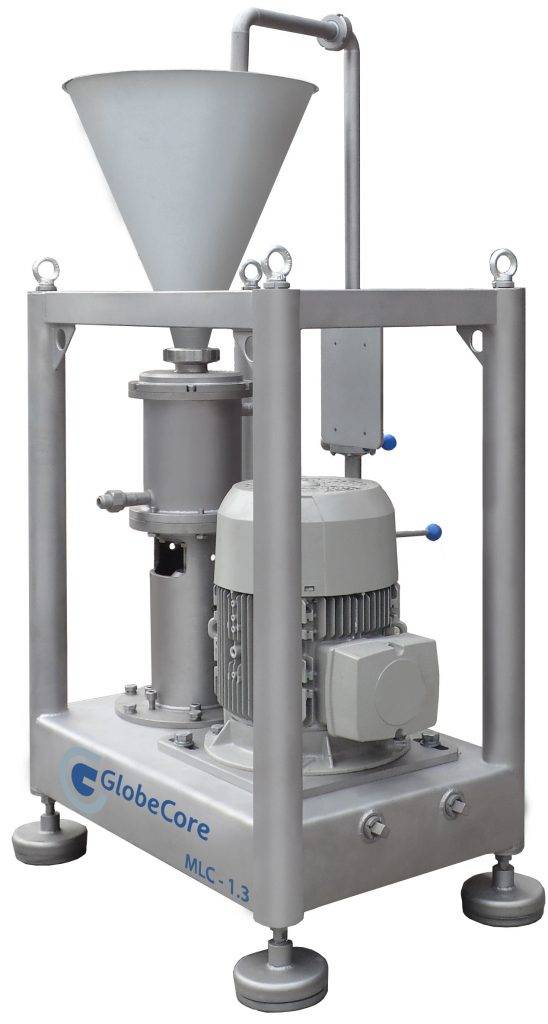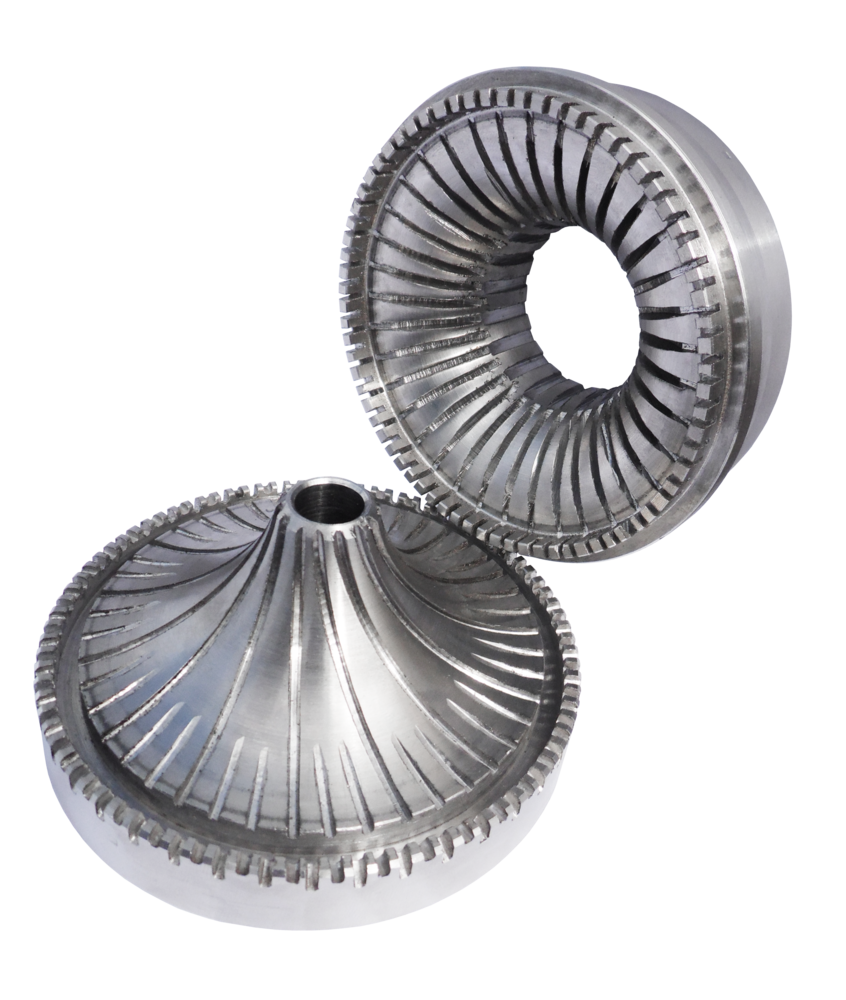Colloid Mill MLC-1.3 (laboratory or for food production)
Small size colloid mill MLC

Colloid mill CLM, referred to as the mill throughout this text, is specially designed for the production of highly stable colloidal solutions, extremely fine suspensions, mixtures and emulsions. “Wet” grinding technique is used, as the rotor and stator cone gap is wider at the inlet and narrower at the outlet. Additionally, the complex micro relief of the generator (stator) surface creates increased turbulence, shearing the particles.Under the influence of centrifugal force and high velocity of the rotor relative to the stator, liquid and semi-liquid substances are finely dispersed and homogenized, any mix of materials are also emulsified, homogenized and dispersed.
The mill allows for simultaneous dispersion and homogenization. Heating jacket allows to heat or to cool the crushing zone as required.
The mill features high production rate; it allows to produce highly stable emulsions as well as colloid suspensions, and ensures high degree of homogenization with particle size down to 1 micron.
Additionally, mashing effect and cavitations effects occur in the mill i.e. explosion of micro caverns by internal pressure. The mill can be retrofitted into existing lines of production. To facilitate high quality grinding, the product must enter the mill at designated solid to liquid phase ratio and constant rate.
Particle size and pumping performance may vary depending on physical and mechanical properties of the material and carrier phase.
Colloid mills and their modifications are applied in:
- machine-building industry – for production of lubricating and cooling emulsions, lubricants, process mediums for cooling in heat intensive processes.
- power industry – for “heavy oil + water” emulsion production and burning in boiler houses and other power generation systems (reduces heavy oil consumption by 7-10% due to increased degree of combustion efficiency, boiler efficiency increase by 2-3%, decrease of carbon and nitrogen oxide emissions to the atmosphere up to 50%, waste product disposal). Conversion of liquid oil waste products into fuel (oil refinery, seaport, industrial waste). Mixing of stable fuel emulsions from oil sludge.
- chemical industry – for improvement of interphase component contact in multiphase heterogeneous systems, for extracting, for oil product and waste water purification, for production of household chemicals, glues, varnishes, polishes and antiseptics.
- varnish-and-paint industry – for paint production.
- food industry – for dairy processing, for fat emulsion production, for corn starch production, for making of fruit puree, mayonnaise, yoghurts, soft cheese, kefir, condensed milk, melted cheese, for milk powder and cream recovery.
- pharmaceutical, perfumery and cosmetic industries – for production of high quality stable shampoos, gels, creams, emulsions, medical products, ointments, pastes.
SPECIFICATIONS
of serially produced colloid mills.
| № | Parameter | CLM – 1.3 |
| 1 | ***Capacity rated (on the water), m3/hour, up to. | 1,3 |
| 2 | Operating pressure, bar. | 0,5 |
| 3 | Rotation speed, RPM. | 3000 |
| 4 | **Max heat carrier temperature, °С. | 160 |
| 5 | **Minimum coolant temperature, °С. | -4 |
| 6 | Dispersion, microns. | <50 |
| 7 | Nominal pressure/suction bore diameter, mm. | 32/32 |
| 8 | Drive power, kW. | 3 |
| 9 | *Dimensions, mm:
– length – width – height |
720 700 1330 |
| 10 | Weight, kg. | 75 |
Warranty period is 12 months from the moment of commissioning.
Equipment can be delivered to anywhere in the world.

